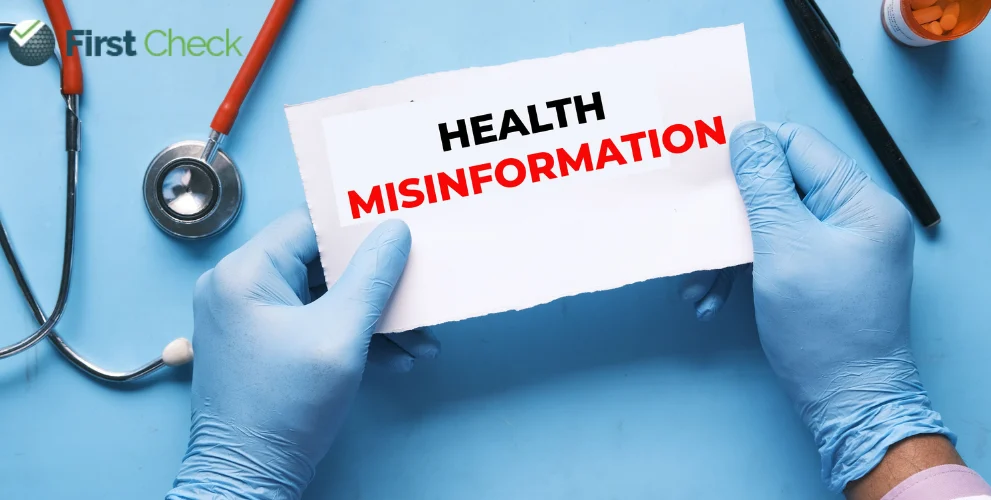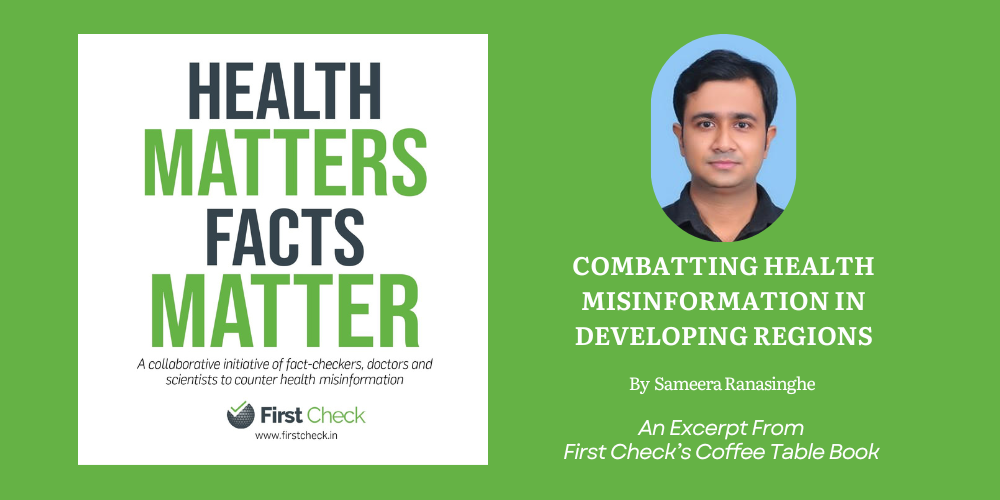Lessons in fighting health misinformation from Nigeria
Author
Author
- admin / 2 years

- 0
- 3 min read

Author
Beyond short-term online campaigns, proactively engage with social media influencers and equip them with the necessary tools and knowledge to counter misinformation.
While measles vaccination has seen success in Nigeria, challenges persist, especially with the introduction of new vaccines. Resistance to these vaccines often arises from misinformation spread on social media platforms. Whether it is Facebook, YouTube, TikTok, or WhatsApp, the prevalence of misinformation is evident. However, WhatsApp, being a closed communication channel, has emerged as a primary conduit for spreading misinformation in Nigeria.
The prevalent misinformation about the human papillomavirus (HPV) vaccine, for example, largely revolves around reproductive health concerns. Many misconceptions stem from fears about the vaccine’s impact on fertility and population control. In addition to addressing reproductive health concerns, we also face challenges related to trust and accountability.
Misinformation may sow doubts about the intentions of vaccination programmes, necessitating transparent communication and community engagement. We need to provide accurate information in order to foster trust in vaccination programmes, and to encourage scientific discourse.
Effective ways to combat health misinformation
- Our approach to combating misinformation mirrors that of public health surveillance. We gather information, investigate sources, and disseminate accurate information to mitigate its spread. By remaining vigilant and proactive, it’s possible to fight misinformation effectively and safeguard public health.
- Teaming up with social media influencers can also help combat health misinformation. While these platforms are fertile ground for misinformation, they can also provide a crucial space for countering false narratives. Beyond running short-term online campaigns, it’s a good idea to proactively engage with social media influencers and equip them with the necessary tools and knowledge to counter misinformation.
- It’s essential to make concerted, strategic and collaborative efforts to leverage social media as a tool for disseminating evidence-based health information. By investing in the training and support of a diverse group of people, we can create a ripple effect that will positively impact society. Through their collective efforts, we can amplify accurate information and counter the spread of misinformation effectively.
- Finally, the collaboration between healthcare workers and the media is paramount. Through capacity-building initiatives, we can enhance the media’s understanding of scientific concepts and data. This can help them communicate the information authoritatively and empathetically, fostering a sense of shared responsibility in addressing public health challenges.
(The author is a First Check member and Program Coordinator – Health Misinformation Management, with Nigeria Health Watch.)
Read more : Why we need to collaborate to fight health misinformation










